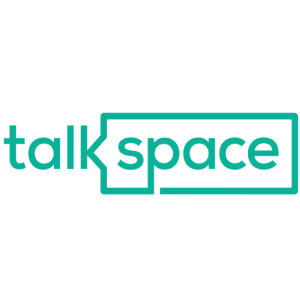TeenCounseling.com Reviews 2024: Pros, Cons, Pricing & Plans
All articles are produced independently. When you click our links for purchasing products, we earn an affiliate commission. Learn more about how we earn revenue by reading our advertise disclaimer.

6.5
Quality
8.5
Support Research
7.0
Reputation
6.5
Price
Features
- Live texting, messaging, phone, or video calls.
- Parents can also receive therapy.
- Ability to change therapists.
- 30-minute weekly sessions
- Cancel at any time.
Brand Information
- Provides online therapy for teens.
- Founded in 2015.
- Owned and operated by BetterHelp.
Medical Benefits
- Helpful for mood disorders.
- Teaches new coping methods.
- Focuses on goal setting.
- Instills communication skills.
- Can improve family relationships.
About The Brand
TeenCounseling.com is an online therapy platform created by the company BetterHelp. It was founded in 2015 to focus on adolescents between the ages of 13-19 — a large population group missing out on therapy options in the online market.
Every therapist and counselor on the site must have completed all their necessary training and education, including at least three years and 1,000 hours of client experience. However, the site doesn’t oversee its therapists and does not employ them.
What Is Teen Counseling?
Teen Counseling is a website that offers online therapy with licensed therapists for teens from 13 to 19 years of age, as well as their caregivers. Their goal is to support teens and their legal guardians with a wide variety of issues, such as depression, anxiety, self-esteem, stress, bullying, anger, and eating disorders.
They use psychologists, professional therapists, licensed marriage and family therapists, and clinical social workers that focus specifically on youth-related mental health issues. You’re matched with the professional that best suits your needs, with the option to switch at any time.
Feature Product & Coupon

Best Reputation
TeenCounseling.com
- Live texting, messaging, phone, or video calls.
- Parents can also receive therapy.
- Ability to change therapists.
- 30-minute weekly sessions
- Cancel at any time.
How Does Teen Counseling Work?
The Teen Counseling subscription includes four live 30-minute sessions with the option to message your therapist anytime. The teen or their caregiver begins by submitting a questionnaire to find the best match with a qualified therapist. Billing begins once the first therapy service starts.
Get Matched With A Therapist
To begin your subscription, you need to sign up for a plan. If the parent or legal guardian signed up to the site, they’ll be matched with a therapist and receive an invite code via email and text message. They should pass this code along to their teen so that they may begin their sessions. While parents might be present initially if the teen client chooses, they undergo therapy sessions with the teen and the therapist alone.
How To Communicate With Your Therapist
The communication between the teen in the therapist is done in four ways:
- Chatting live.
- Exchanging messages.
- Speaking over the phone.
- Video sessions.
You can choose whichever method works best for you and change the method based on your needs and availability.
Chatting Live
If you don’t feel up for a video or phone call, you could also have a live chat session with your therapist for a real-time connection for instant feedback. Just schedule a time that works best for both you and your therapist and log in to your account to start chatting at the agreed-upon time.
The disadvantages of using the chat function are the potential absence of emotional facial expressions and body language that often convey important information to the therapist about how therapy is going or the presence of unexpressed concerns. This lack of visual feedback may impair therapy progress. The advantages are that it’s an easier and cooler way of expression, one that’s in style considering social media popularity in this age group and, thus, maybe a more acceptable form of intervention.
Exchanging Messages
Once you access your personal room, you’ll be able to start writing about yourself and whatever it is you feel you need to talk about. You can explain whatever situation you’re facing, what your usual life is like, and ask questions about whatever’s bothering you.
You can expect your therapist to respond with kindness, insights, guidance, and questions to help steer you in the best direction. These messages can be sent anytime and anywhere since the room is open. You’ll get an email or text notification when your therapist responds since it’s not real-time messaging.
Again, there is the disadvantage with this option of a lack of body language feedback or speech cues that may facilitate more open communication. The advantage is you may be able to reach a teen who otherwise would not seek counseling via traditional methods.
Live Phone Call
Using your cell or landline, you can connect with your therapist for a phone session. You only need to schedule the time beforehand and log in to your therapy room simultaneously. The therapist will prompt the start of the phone call, and the site will ask you to enter your phone number. The system will then give the number a call, and your therapist will be waiting at the other end.
This is done to avoid the therapist seeing your personal phone number.
The advantages of a live phone call are that the therapist can take cues from speech tone and use of language that may guide the therapist to more effective listening and therapy responses since the verbal cues may be more spatial and revealing.
Live Video Session
If you’d like a more personal touch and want to speak with your therapist face to face, you can connect via video conferencing. Schedule a time beforehand and log into your therapy room when the date arrives on either your computer with a camera or from the Teen Counseling app on your smartphone. Your therapist will prompt the video session on the site, where you only need to click confirm, and the video meeting will begin immediately.
Live sessions allow for more open communication and feedback, allowing for the visual expression of feelings and thoughts that often reveal much more than a simple chat.
Who Should Join Teen Counseling?
All teens between 13 to 19 years of age are welcome to join Teen Counseling. Therapists are there to provide personalized support and teach coping skills for almost any issue you might be facing. Even if you don’t feel there’s a significant issue, they can also work on helping teens learn how to set meaningful goals, improve their grades, and communicate better in their relationships both in and outside of the home.
It can also be a great option for family conflict, where both the parents and teen are unhappy and need to find new and healthier ways to manage their relationship. Online counseling for family therapy has been shown to be effective.[1]
Teen Counseling is a long-term option that teaches problem-solving skills, and not for those in an immediate crisis. If you or someone you know is in immediate threat of suicide, call or chat online with the suicide and crisis lifeline at 988 or text HOME to 741741.
It’s also not an option for teens without access to a device with a reliable internet connection.
Finally, if your teen has been court-ordered to attend talk therapy sessions, Teen Counseling is not an option.
Pricing & Subscription Plans Of Teen Counseling
Teen Counseling offers monthly subscription plans that range from $60 to $90 per week. You can be automatically billed every four weeks or every week to your credit card. Teen Counseling costs change, however, depending on your location, personal preferences, and the therapist you choose.
Only one therapy plan is available, including four live virtual sessions and messaging. Fortunately, you can cancel your membership at any time if you’re unsatisfied with the service. Be sure to cancel before it renews to avoid the next automatic billing cycle.
If your therapist cancels for whatever reason, you won’t be charged for that session. However, if you don’t show up for your agreed-upon session, you will still be expected to pay the full monthly or weekly membership fee. Basically, if you don’t give enough notice for your therapist to cancel the appointment ahead of time, you’ll still be charged for the session.
For parents or guardians who are looking for insurance-covered therapy, Teen Counselling does not submit insurance claims. The cost is out of pocket, although discount codes are often available for first-time users to help cover the expenses.
Pros
- In-app messaging
- Parents can also receive therapy
- Ability to switch therapists
- Option to cancel at any time
Cons
- Complaints of old and poor-quality videoconferencing technology
- The exact cost is unknown until you sign up
- Sessions are only 30 minutes
- Doesn’t take insurance
What Do We Like About Teen Counseling?
Many teens are nervous or unwilling to speak to a therapist, but trying out 30-minute online sessions with texting could be the easiest way to get them involved and interested. With time, they might feel comfortable moving to phone or video calling but always have the option to text if they’re busy or just need extra support.
Teen Counseling has in-app messaging, making teens feel comforted that help is always there if they need it.
You can also choose your therapist by reading their biography, specialties, clinical approach, and availability for live sessions. You can switch anytime if you don’t feel a connection, so you don’t have to feel locked in if you’re uncomfortable. You can also cancel at any time, making it decently risk-free.
Finally, something we love about Teen Counseling is that parents can be involved in the sessions if the teen wishes. The parent can even get therapy on their own, helping them to learn new ways of managing whatever issues their teen or family is facing. This is an important benefit since communication methods easily become strained between a parent and their teen.
Also, parental involvement and style[2] during childhood and adolescence are some of the most crucial factors in the development of mood disorders, such as anxiety and depression. That’s why we love that Teen Counseling allows parents to learn new parenting styles, as well. Chances become much higher for teens to improve when the entire family can function and behave in healthier ways.
Alternatives To Teen Counseling

Talkspace
$85 off your first month: HEALTHCANAL85
- Informative blog and resource is just for teens.
- Ability to choose and change counselors.
- Takes insurance.
- Only given three options to choose a therapist to start.
- No guarantee you’ll get the therapist you want.

Betterhelp
20% Off First Month: healthcanal
- Text messaging, live chat, video, and phone sessions.
- Ability to choose and change counselors.
- Offers financial assistance.
- Automatically matched with a counselor unless you specifically choose your own.
- Doesn’t take insurance.

Calmerry
40% Off Coupon: HEALTHCANAL
- Mood tracking tool and online journal.
- Ability to choose and change counselors.
- A cheaper option than other online therapy sites.
- No phone therapy.
- Doesn’t take insurance.
Teen Counseling Review: What Do Real Users Say?
The majority of teen counseling reviews claim it was a positive overall experience. They saw improvements in their teen and felt they were matched well with their therapist. Parents also appreciated the therapist’s availability for scheduling sessions, along with the four different communication options.
Most of the negative reviews revolved around technology, customer service, and short sessions. However, 30-minute sessions have become standard for many online therapy-based companies, such as BetterHelp, with only a few offering 45 to 50-minute sessions.
Here are some recent customer reviews from Trustpilot, with a total of 3.9 out of 5 stars:
I sought out this platform to help one of my students, that is struggling with gender dysphoria. They found the sessions to be very helpful and engaging. They found that the counsellor was easy to engage with about the emotions they were feeling. The platform itself is easy to navigate. Payment for low income are very reasonable.
Judy.
The platform is so easy to use. I love being able to find therapists, experience in their own words as well as reviews of patients. They make it so easy to schedule appointments via video or phone. And they seem to actually ensure you feel comfortable with process along the way. I’m a single mom and can use any type of support necessary to ensure my daughters mental health is ok. I’m so appreciative!
Desiree Perez.
My daughter has shown great improvements in her responses and actions with whatever life brings her. Her therapist connected with her immediately which is something tough for everyone, and my daughter looks forward to her sessions. It’s great for her as a sounding board and just to get tips on stress and anxiety.
Mayra.
Their Facebook page only has a few reviews, with 2 stars out of 5:
Whoever runs this program should be ashamed of themselves. They have made it nearly impossible to CANCEL a membership with them. Yet they have no problem charging your bank account their monthly fee. Constant emails back and forth asking for the same info and never getting a resolution. THERE IS NO PHONE NUMBER TO CONTACT SOMEONE FOR HELP.
Tammie Clements Elsik.
It cost me $85 per session which you would think would be a full hour but turns out to be 28 minutes of unhelpful time wasted. My other teens see a counselor IN PERSON for $55 for one FULL HOUR and their counselor is actually helpful and listens. Teen Counseling was a complete waste of my hard earned money. And they are continuing to charge my card for un-used sessions until my subscription end date. Do not waste your money. I hope I wasn’t unclear about my feelings about this app/organization.
Paige Colgin Vazquez.
As of this writing, canceling a membership is very easy. You log onto the site, click your user name at the top right, and select account settings from the scroll-down menu. From there, go to payment settings and hit cancel. As long as you cancel before your next billing cycle, you won’t be charged again.
Final Thought
Teen Counseling is a great option for teens and parents who want to try out therapy and need wide availability for session timing and communication options. Some teens aren’t ready to speak face to face, which makes messaging or live chat a helpful way to ease them into talking with a professional about their problems.
Another wonderful benefit is that parents can receive therapy alongside their teens. This makes it all the more likely that therapy will be successful,[3] as many teen issues also involve their home life and relationship with their parents. When families come together for therapy and learn how to communicate effectively in ways that are productive and in line with each other’s needs, they can create life-long changes in their relationships within the family unit.
Mental health care is one of the most important investments a family can make for the well-being of their teen, making us recommend Teen Counseling as well worth a try.
Frequently Asked Questions
Yes. As long as you’re not facing an immediate health crisis, such as suspecting self-harm or suicide, TeenCounseling.com can help your teen learn new coping and problem-solving skills to manage whatever stressor they’re facing. They can cover a wide variety of mental health conditions and even work on goal setting, grade performance, communication skills, and more.
No. TeenCounseling.com does not accept any insurance plans.
No. Teen Counseling therapists are not psychiatrists and cannot prescribe medication.
Schedule a time that works best for both you and your therapist and log in to your account to start chatting at the agreed-upon time.
Yes. The majority of reviews are positive, and the ease of use makes it more likely for people to get much-needed professional help.
+ 3 sources
Health Canal avoids using tertiary references. We have strict sourcing guidelines and rely on peer-reviewed studies, academic researches from medical associations and institutions. To ensure the accuracy of articles in Health Canal, you can read more about the editorial process here
- McLean, S.A., Booth, A.T., Schnabel, A., Wright, B.J., Painter, F.L. and McIntosh, J.E. (2021). Exploring the Efficacy of Telehealth for Family Therapy Through Systematic, Meta-analytic, and Qualitative Evidence. Clinical Child and Family Psychology Review, [online] 24(2), pp.244–266. doi:https://doi.org/10.1007/s10567-020-00340-2.
- Eun, J.D., Paksarian, D., He, J.-P. and Merikangas, K.R. (2017). Parenting style and mental disorders in a nationally representative sample of US adolescents. Social Psychiatry and Psychiatric Epidemiology, [online] 53(1), pp.11–20. doi:https://doi.org/10.1007/s00127-017-1435-4.
- Haine-Schlagel, R. and Walsh, N.E. (2015). A Review of Parent Participation Engagement in Child and Family Mental Health Treatment. Clinical Child and Family Psychology Review, [online] 18(2), pp.133–150. doi:https://doi.org/10.1007/s10567-015-0182-x.



